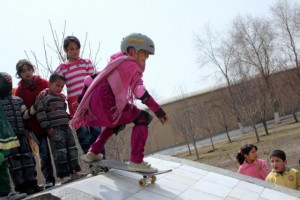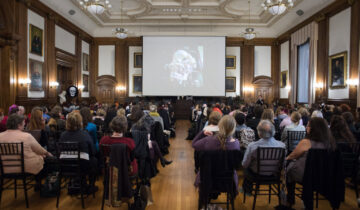 For the ECONOMIST: UNDER Taliban rule, sport in Afghanistan hovered between restricted and banned. Since the regime’s fall from power, it has seen a revival. Most famously, Afghanistan now has a cricket team that has risen quickly through the league. But resources and equipment for amateur sporting activities remain limited.
For the ECONOMIST: UNDER Taliban rule, sport in Afghanistan hovered between restricted and banned. Since the regime’s fall from power, it has seen a revival. Most famously, Afghanistan now has a cricket team that has risen quickly through the league. But resources and equipment for amateur sporting activities remain limited.
When Oliver Percovich, an Australian skateboarder, arrived in Kabul in 2007 to join his girlfriend, his impromptu skateboarding sessions attracted the attention of local boys and girls. He soon realised that sporting opportunities for the youth were especially scarce. Funds allocated for social projects would end up lining the pockets of the older generation or were misspent. So he decided to build a skate park to provide the youth with somewhere to learn and play.
A new coffee-table book, “Skateistan: The Tale of Skateboarding in Afghanistan”, and a short film, “Skateistan: The Movie”, chronicle the park’s journey. In 2009, Mr Percovich founded Skateistan, an NGO, and used it to establish a skateboarding facility of the same name. He started out with $20,000 worth of donated equipment from American skateboarding companies. Local marble, one of Afghanistan’s cheaper building materials, was used to make the park’s floors. Ramps are made from local plywood as well as more durable boards from Europe that staff say will not need to be repaired or replaced for several years. Located on the grounds of the Afghan National Olympic Committee, which donated the land and whose permission Mr Percovich needed to open the facility, the park is in a quiet, relatively safe part of town.
Each week, around 400 teens—up from 40 in 2009—come to skate and attend free classes in civic engagement, leadership, multimedia and “creative arts” (such as spray-painting). Mr Percovich says the aim is to break down social barriers of gender and ethnicity in a secure environment: “On a skateboard, you don’t see differences in colour or background, just the tricks you can do.” Skateistan is the largest sporting organisation in Afghanistan that is accessible to females. This is significant in a country that, despite the increased role of women in Afghan government and the military, still grapples with social prejudices and violence against women. Skateistan now has more than 25 Afghan staff and operates on a $500,000 annual budget, mostly donated by Western embassies. There are plans for a branch in Mazar-e-Sharif, a large city in the north.
Mr Percovich believes that when ideas are transplanted over from somewhere else, “locals don’t believe in it”. Skateistan works, he says, because much of the park’s decision-making is in the hands of young members. Skateistan’s organisers have also made an effort to get to know many of the children’s parents and extended families. “I’m simply a conduit,” Mr Percovich says. “It’s top-down but also bottom-up. They asked me for boards, so we got them. They asked for classes, so we organised those.” Some boys walk up to 10km (6 miles) to get to the park (transport is provided for girls). To avoid too much Western influence, Mr Percovich does not play skateboarding videos or music. As a result, Kabul’s young skateboarders ride the way they want to, in a style Mr Percovich simply describes as “pretty unique”.
Photo courtesy of Skateistan




Pretty nice post. I just stumbled upon your weblog and wanted to say that I’ve really loved surfing around your weblog posts. After all I’ll be
subscribing on your feed and I hope you write again very soon!
Every weekend i used to go to see this web site, because i want enjoyment,
since this this website conations in fact fastidious funny
information too.